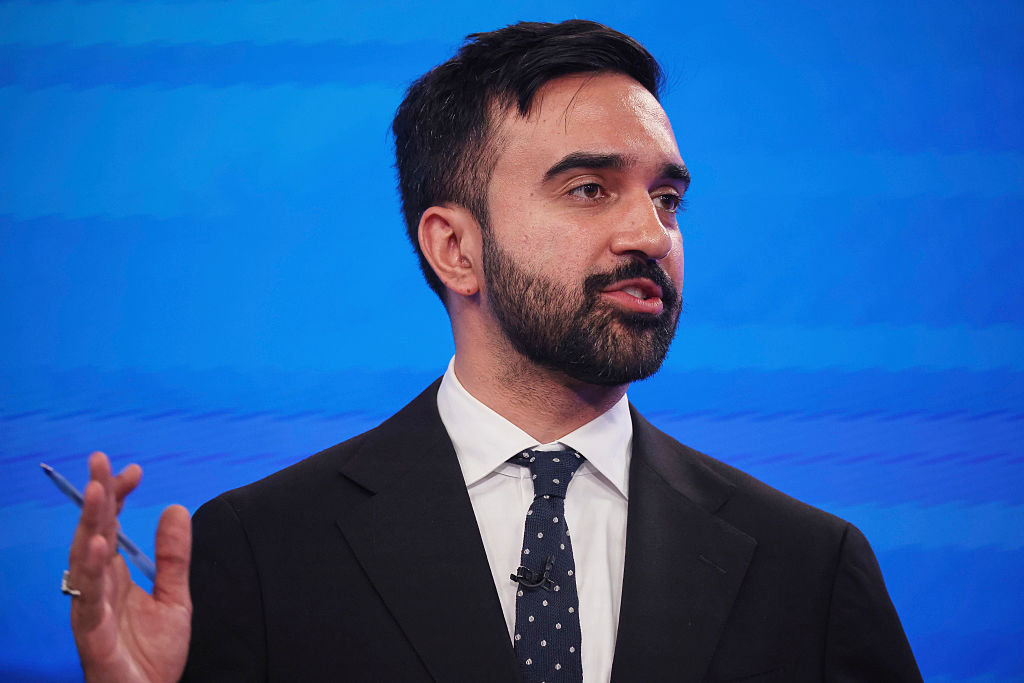Obama, CEOs Make Peace, Search For Common Ground
WASHINGTON — President Barack Obama and the nation’s business sector, staunch rivals in past battles over how to overhaul health care and banking regulations, are moving toward a wary embrace.
With new tax and trade deals as enticements, Obama is taking yet another step toward the political middle as he moves to confront a still weak economic recovery and the capital’s new political alignment.
Obama is meeting with about 20 CEOs Wednesday, and both sides come to the session with their respective wishes: Obama wants the private sector to use its record profits to increase employment; executives want the administration to ease regulations they perceive as too onerous.
Since the election, Obama has been holding private meetings with individual executives to discuss potential job growth strategies. But the higher profile meeting Wednesday also serves a larger public relations purpose: It shifts attention from past confrontation and “fat cat” rhetoric to rolled-up-sleeves cooperation.
“We have to be competitive and the private sector needs to stand up,” said Austan Goolsbee, the chairman of the White House Council of Economic Advisers. “There is opportunity perhaps in the fact that the corporate sector has begun to rebound and there is cash on their balance sheets.”
Obama senior adviser Valerie Jarrett said some companies are recovering, others are waiting for demand to increase and others are “looking for some certainty in the regulatory environment.”
“Companies are sitting on a great deal of cash so it would be very important for the president to understand what more could we do to encourage investment that is going to lead to job creation,” she said.
Among the executives expected to attend are some who are well known to the president, including American Express CEO Kenneth Chenault, Cisco Systems CEO John Chambers and Google CEO Eric Schmidt. Some others will be new faces to the White House, officials say.
The outreach clearly meets the White House’s goal of sharpening Obama’s image as a president willing to reach out to former antagonists – a move that has angered liberals but could resonate with independent voters.
In applauding a Senate vote Monday in support of the tax deal he negotiated with Republicans, Obama underscored the new political reality by acknowledging opposition from the left and right wings of the political spectrum. “That’s the nature of compromise,” he said, “sacrificing something that each of us cares about to move forward on what matters to all of us.”
Obama also plans to meet with labor leaders on Friday, making sure he is not ignoring his allies and helping burnish his new image as a broker between foes.
Unions were mixed in their reaction to a new trade deal with South Korea – the United Auto Workers supported it while AFL CIO president Richard Trumka opposed it.
Wednesday’s CEO meeting comes as the business sector itself has tempered its past criticism. Chamber of Commerce President Tom Donohue, a sharp critic of past Obama initiatives, has said the giant trade organization wants to cooperate with the administration on jobs and on trade, as it did on the recent South Korea trade agreement. The White House, meanwhile, is considering an invitation to speak to the chamber board next month.
Last week, Verizon Communications CEO Ivan Seidenberg, the chairman of the Business Roundtable, downplayed past differences with the administration and said that over the past month, “the president’s shown a willingness to learn.”
Seidenberg specifically cited common ground on education that better trains the American work force – an issue Obama himself drew attention to last week during a speech in North Carolina.
“That’s a sweet spot,” Seidenberg said.
The meeting coincides with a slight uptick in corporate optimism about the economy. A survey of CEOs by the Business Roundtable released Tuesday shows that compared to attitudes three months ago, more executives predict sales and jobs will increase by the middle of next year.
Time and again, however, business leaders have complained about the administration’s regulatory environment and the Chamber of Commerce has made battling regulations a priority for next year.
White House officials say they are open to correcting regulations if they interfere with job creation. That requires a balancing act by Obama, who vigorously pushed for a tougher regulatory regime on the financial sector and whose signature health care bill added a sweeping new layer of rules on the private sector.
“One of the things we have heard is the sooner we get to certainty in the regulatory environments and the companies understand what their costs are going to be that will help trigger investments,” Jarrett said.
Added Goolsbee: “To the extent the criticism about regulation is there, how can it be made more streamlined, more efficient, operate better, he’s totally open to discussing that.”
The White House and business sector talks come in the wake of a report showing the jobless rate rose from 9.6 percent in October to 9.8 percent in November.
“Everyone was jolted somewhat by that,” said John Duncan, a Treasury assistant secretary in the Bush administration. “It added urgency that we not have a double dip” recession.
Duncan, who has advised his lobbying clients to look for outreach from Obama to Republicans over the next two years, said peace with CEOs gives Obama an opportunity to mend fences.
“It’s a new world,” Duncan said.















